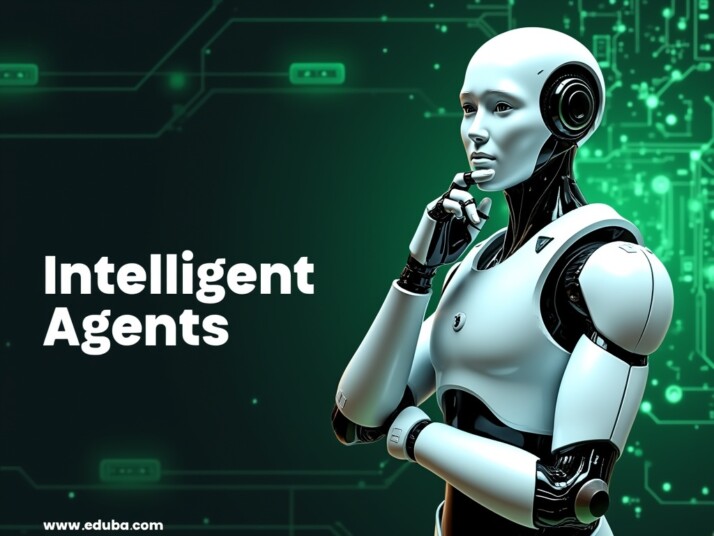Did you know that over 10 million self-driving cars are expected to be on the roads by 2030? This number highlights the growing importance of intelligent agents in autonomous systems. These AI-powered entities are transforming how machines interact with the world around them, making split-second decisions without human input.
Intelligent agents are the brains behind autonomous systems like self-driving cars and drones. They process vast amounts of data from sensors, cameras, and other sources to navigate complex environments safely and efficiently. But how do these agents actually work? And what makes them so crucial for the future of automation?
In this article, we explore the world of intelligent agents in autonomous systems. We break down the different types of agents, from simple reactive models to sophisticated learning systems. You’ll discover how these agents are built, the challenges they face, and the exciting possibilities they unlock for industries ranging from transportation to healthcare.
Get ready for a journey into the cutting-edge of AI technology. By the end, you’ll have a clear picture of how intelligent agents are shaping the autonomous future – and why they matter for all of us.
Understanding the Architecture of Intelligent Agents
Intelligent agents are systems that help computers make smart choices. They have parts that work together, similar to how our bodies function. Let’s explore how these agents are built and how they operate.
The Building Blocks of Intelligent Agents
Every intelligent agent has three main components:
- Sensors: These are like the agent’s eyes and ears, taking in information from the environment.
- Decision-making mechanism: This is the agent’s brain, determining actions based on sensory input.
- Actuators: These are like the agent’s hands and feet, executing the decisions made by the brain.
Together, these parts help the agent sense, think, and act, much like how humans use their senses, brain, and muscles to perform tasks.
Types of Intelligent Agents
Intelligent agents come in different forms, each with its unique way of thinking and acting:
Simple Reflex Agents
These agents react quickly based on current perceptions without considering past experiences or future consequences. For example, a simple thermostat turns on when it’s cold and off when it’s warm. It’s fast but not very smart.
Model-Based Agents
These agents maintain an internal model of the world, helping them make better decisions even with incomplete information. It’s like guessing what’s in a dark room based on memory.
Utility-Based Agents
These agents aim for the best long-term outcomes by weighing different options. It’s similar to choosing between immediate gratification and a bigger reward later.
How Agents Make Decisions
The decision-making process is crucial for intelligent agents. Here’s how it works:
- Sensors gather information from the environment.
- This information is sent to the decision-making mechanism.
- The agent decides on an action based on its type (reflex, model-based, or utility-based).
- It selects the best action.
- Actuators execute the chosen action.
This cycle repeats, allowing the agent to improve its performance over time.
Real-World Examples
Intelligent agents are prevalent in our daily lives. Examples include:
- Robot vacuums that clean homes
- Chatbots that answer questions on websites
- Self-driving cars that navigate traffic
Each of these uses sensors to perceive the environment, a decision-making mechanism to determine actions, and actuators to execute those actions.
Understanding how intelligent agents work is key to building better computers and robots. It’s an exciting and ever-evolving field!
Applications of Intelligent Agents in Autonomous Systems

Intelligent agents are transforming autonomous systems, enhancing safety and efficiency in various applications. Here are some real-world examples:
Self-Driving Cars
Companies like Tesla and Waymo use intelligent agents to develop autonomous vehicles. These systems utilize cameras and sensors to navigate roads, make decisions on steering, braking, and collision avoidance. Waymo’s self-driving cars have safely driven millions of miles, demonstrating their advanced capabilities.
Delivery Drones
Amazon and other companies are testing drones for package delivery. Intelligent agents enable these drones to navigate around obstacles, avoid birds, and land safely, potentially speeding up online order deliveries.
Factory Robots
In manufacturing, intelligent agents enhance robot capabilities. These robots can safely operate alongside humans, handling tasks like picking up and moving items. Fanuc’s robots can even learn new tasks by observing human actions.
Smart Homes
Intelligent agents are also improving home automation. Devices like Google Home and Amazon Alexa control lights, adjust heating, and order groceries, learning user preferences to optimize energy use and comfort.
These examples illustrate how intelligent agents are making machines smarter and more useful in everyday life. As technology advances, their contributions will continue to grow, offering even more innovative solutions.
Challenges Facing Intelligent Agents
Staying productive can be challenging. However, with the right strategies, you can significantly improve your efficiency. Start by organizing your workspace, eliminating distractions, and prioritizing tasks. Additionally, taking regular breaks and staying hydrated can enhance your focus. Remember, productivity isn’t about working harder, but working smarter.
Intelligent agents have a lot of potential, but they also face some big challenges. Let’s look at the main problems they need to overcome.
Data Privacy Concerns
Intelligent agents often need to use personal data to work well. This can make people worried about their privacy. Companies are trying to fix this by:
- Using data encryption to keep information safe
- Giving users more control over their data
- Following laws about data protection
Ethical Issues
As agents get smarter, we need to think about ethics. Some key concerns are:
- Making sure agents don’t discriminate against people
- Deciding who is responsible if an agent makes a mistake
- Protecting jobs that might be replaced by agents
To address these issues, many companies now have ethics boards. These groups help make sure agents are designed to be fair and helpful to society.
Technical Problems
Building intelligent agents is hard work. Some of the technical challenges include:
- Making agents that can learn and adapt to new situations
- Ensuring agents make decisions we can understand and trust
- Keeping agents safe from hackers and other security threats
Researchers are working hard to solve these problems. They’re creating better algorithms and testing agents carefully before using them in the real world.
Improving Safety and Reliability
To make agents safer and more reliable, experts are:
- Doing lots of testing to find and fix problems
- Creating backup systems in case something goes wrong
- Teaching agents to know when they’re not sure about something
By working on these challenges, we can create intelligent agents that are more trustworthy and helpful in our daily lives.
The Future of Intelligent Agents and SmythOS
Intelligent agents are transforming how we work and live. As AI advances, these agents will become more prevalent across many industries, helping us complete tasks faster and make better decisions.
Platforms like SmythOS are making AI accessible to everyone. SmythOS allows people to create and use AI agents without needing coding skills, enabling more individuals to harness the power of AI.
With SmythOS, you can build AI agents by dragging and dropping elements, similar to assembling a puzzle. This allows business owners, marketers, and others to create custom AI solutions tailored to their needs.
In the future, we can expect more intelligent agents in our daily lives, assisting with shopping, managing schedules, or even driving our cars. As these agents improve in understanding us, they’ll become more like personal assistants than just computer programs.
SmythOS and similar tools will be crucial in this future. By simplifying the creation and use of AI agents, they are fostering innovation. Small businesses and large companies alike can now leverage AI to solve problems and develop new ideas.
The future of intelligent agents is promising. With tools like SmythOS, more people can participate in this AI evolution. As we progress, these agents will become integral to how we work, learn, and live.
